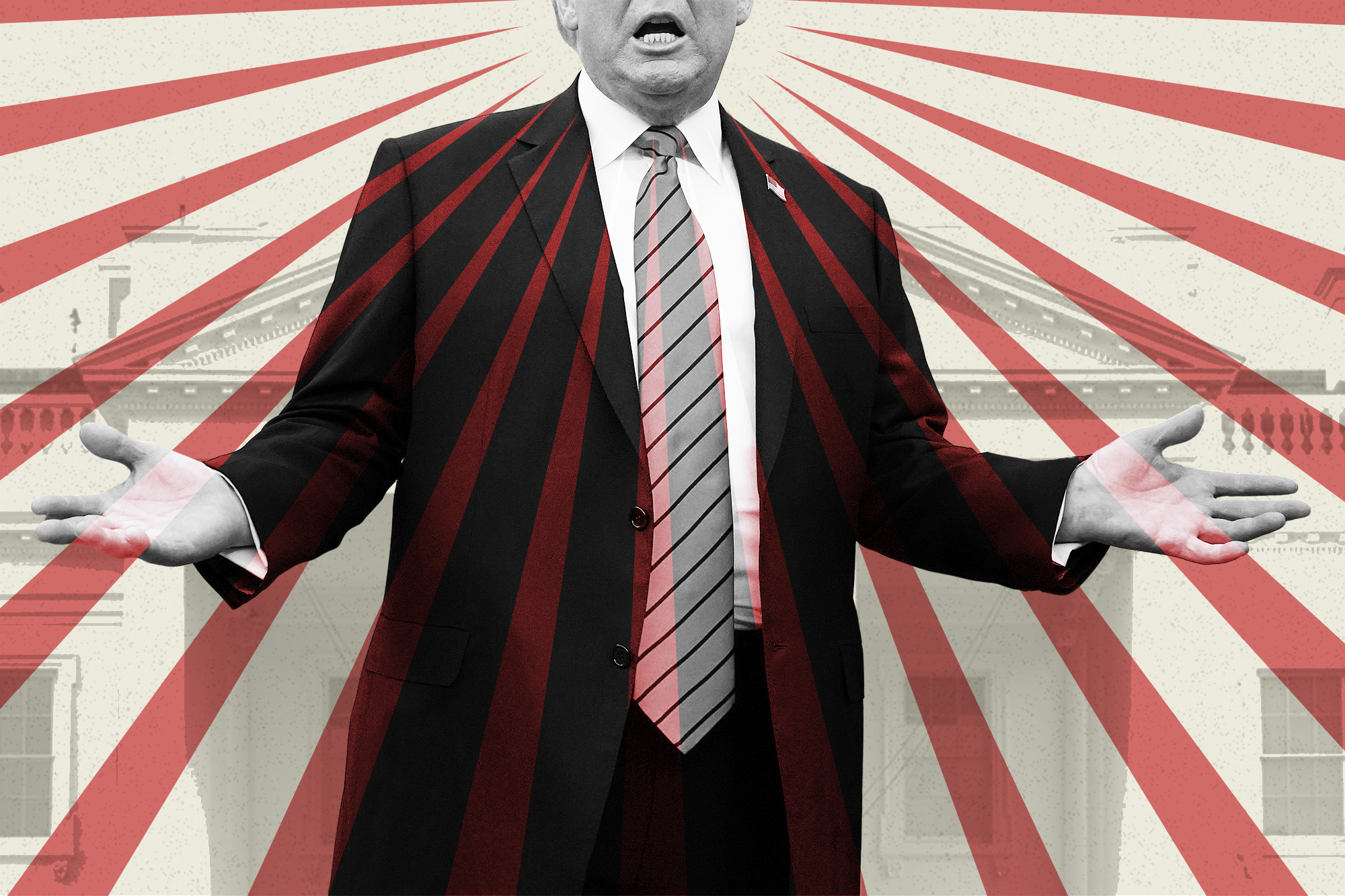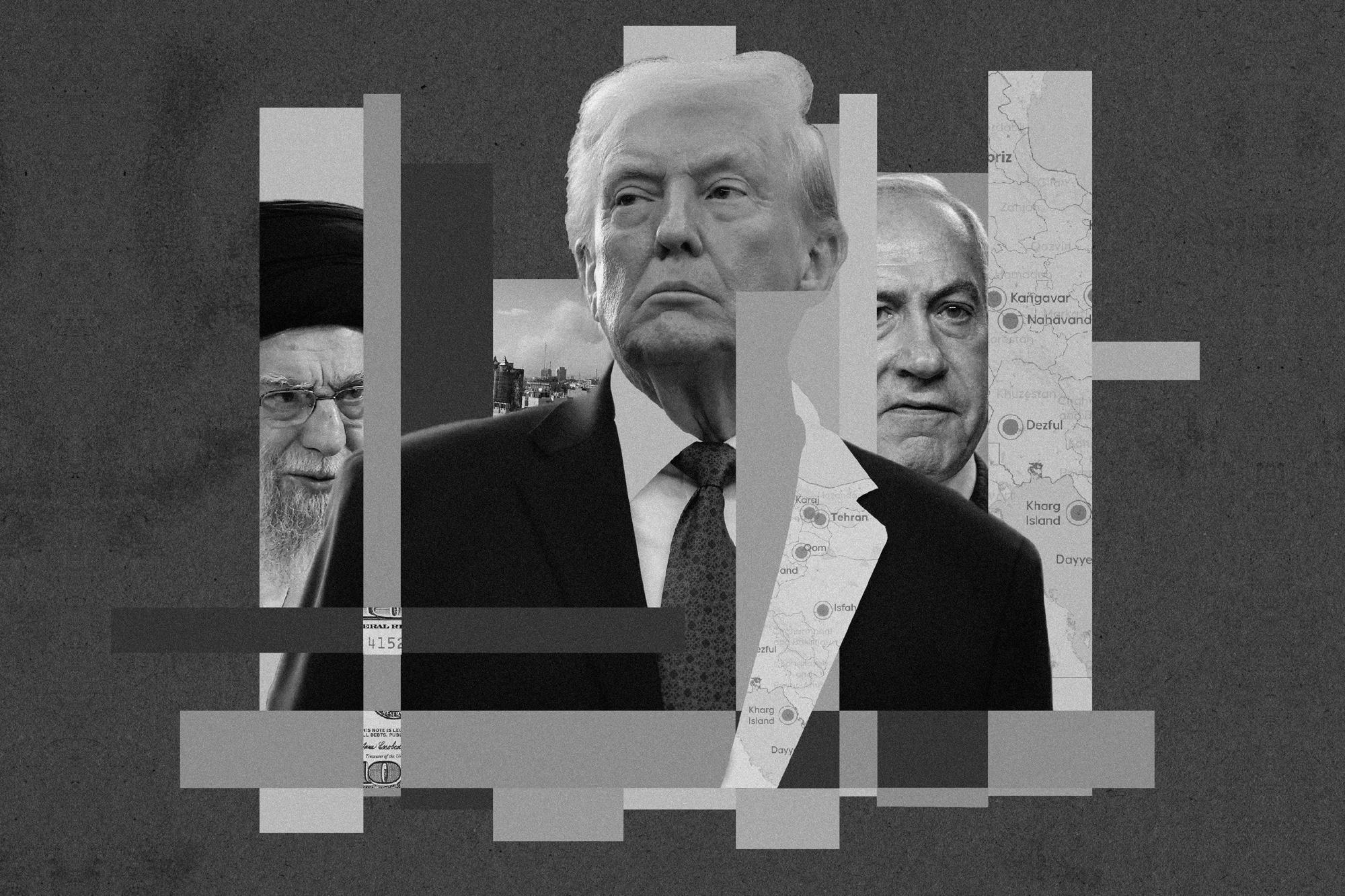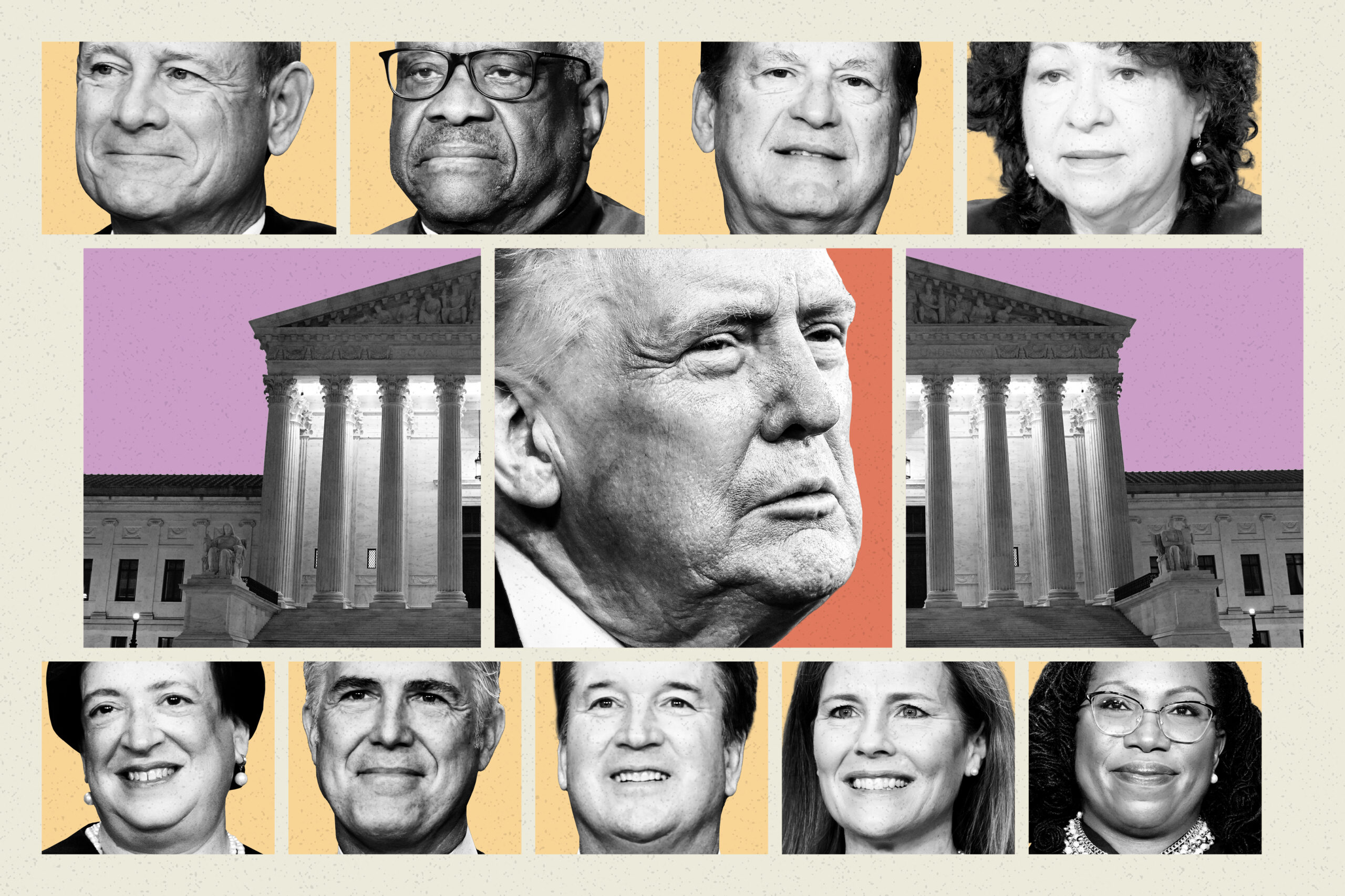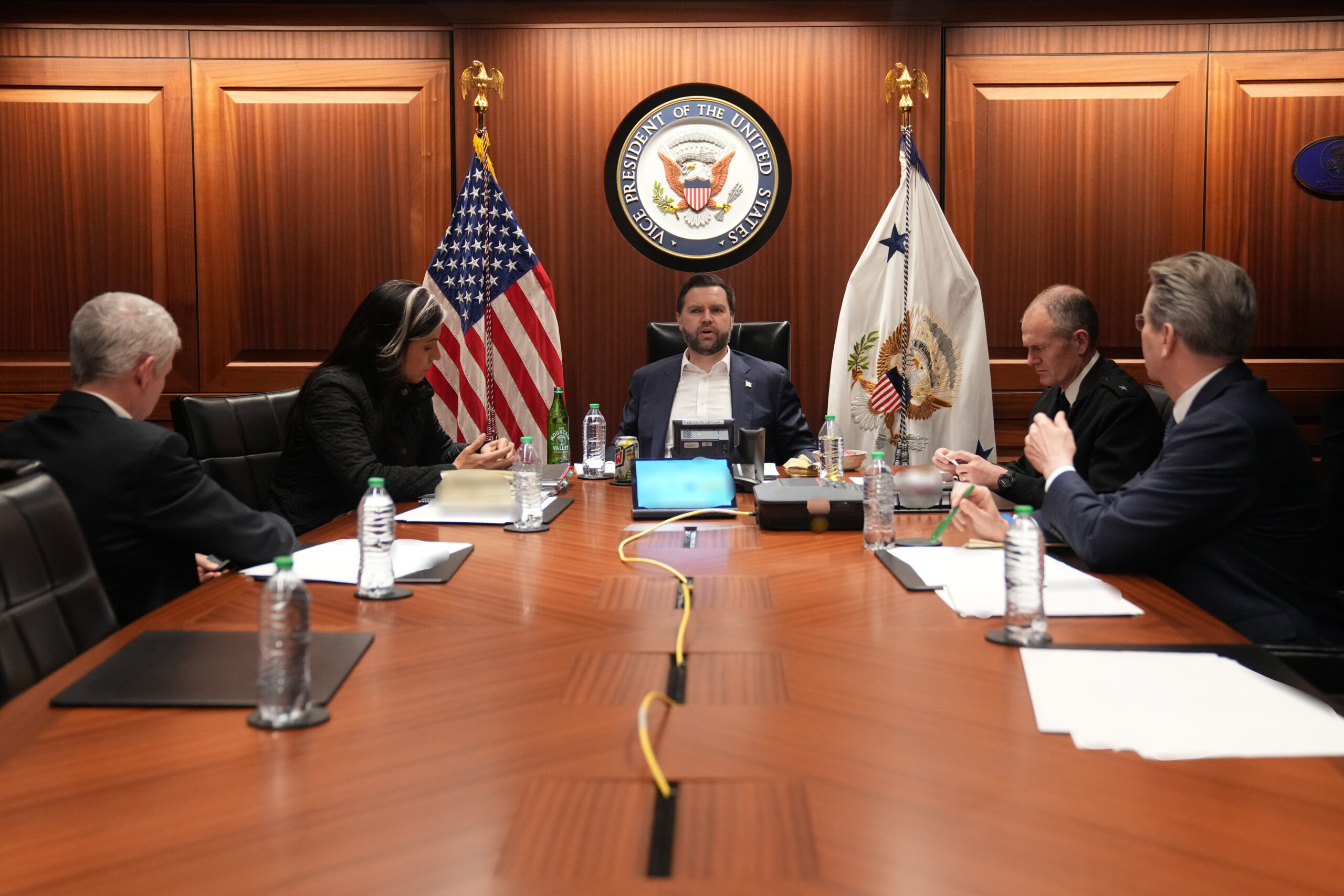The Trump administration has been flailing as it struggles to contain the fallout from its handling of the so-called Epstein files. Is there a way out?
Even on an overseas trip, President Donald Trump couldn’t escape persistent queries from the press about his relationship with the late convicted sex offender Jeffrey Epstein. Some of those answers — like Trump’s statement on Tuesday that he cut ties with Epstein because the predator hired young women away from Trump’s Mar-a-Lago spa — raise more questions.
Lawmakers on both sides of the aisle aren’t letting go either. Speaker Mike Johnson shut the chamber down in an effort to halt a minor revolt among his members and avoid uncomfortable votes on Epstein-related measures, but that may only have prolonged the GOP’s discomfort until September, when the House returns.
Public polls indicate that roughly 60 percent of the American public disapprove of Trump’s handling of the situation. A paltry 16 percent approve, according to a Washington Post poll released this week.
Meanwhile, the administration’s latest gambit — engaging with Ghislaine Maxwell — is getting messier. Maxwell, the only person convicted in the underlying scheme since Epstein died, has started making demands as a condition for giving testimony before the House Oversight Committee. (This is what happens when you give a criminal leverage: They try to use it.) The committee has declined to give Maxwell congressional immunity, but negotiations over the terms of a deposition are apparently ongoing.
The Justice Department and House Republicans could have avoided the embarrassment of publicly negotiating with a convicted child sex trafficker and confirmed liar, but Maxwell’s involvement is now dangling until who knows when. Deputy Attorney General Todd Blanche, who apparently thought it was a good idea to spend two days interviewing her, has promised to “share additional information about what we learned at the appropriate time.”
The whole thing has unfolded like a lesson in how to mismanage a political crisis. Making matters worse, Trump does not appear to have any good options for moving on from this controversy, in large part because of the legal complexities that surround the case.
Below are a few of the potential paths forward, from staying the course to releasing everything to a few options in between. All have conspicuous downsides for the administration, the public or both, but it’s worth going through them.
Status Quo
Right now, the administration has two open lines of pursuit as it seeks to mollify critics who want more insight into the Epstein files: (1) unsealing grand jury transcripts from the criminal prosecutions, and (2) working with Maxwell as a potential government cooperator to obtain new information or leads that might shed further light on Epstein and Maxwell’s deeds and the involvement (or lack thereof) of other people.
Neither of these efforts is likely to prove particularly fruitful or satisfying to the public writ large.
The grand jury transcripts likely represent just a sliver of the information in the government’s possession. That is because when prosecutors present testimony to a grand jury in order to obtain an indictment, they focus on the particular defendants and co-conspirators at issue and the evidence that they are likely to introduce at trial. If there was no evidence presented at trial about other particular individuals or subjects, it is fair to assume that they were not the subject of much grand jury testimony.
Indeed, in court filings on Tuesday night, the Justice Department disclosed that there were only two witnesses who testified in the grand jury proceedings, an FBI agent and NYPD detective. It is routine for federal prosecutors when charging criminal cases to present grand jury testimony from only one or more of the government agents who worked on the investigation; but as a result, the odds are low that they would have provided materially more information to the grand jury than was presented in the indictment or introduced as evidence in the trial.
As for Maxwell, she is a particularly bad candidate to serve as a government cooperator, and it is unlikely that the Justice Department’s engagement with her will generate credible information that the government can credibly rely or act upon.
Maxwell is in prison on a 20-year sentence on heinous charges. At trial, the government presented evidence from victims who testified — in the government’s own words in a sentencing submission just three years ago — that Maxwell and Epstein “worked together to identify girls, groom them, and then entice them to travel and transport them to Epstein’s properties” and that the “girls — some of whom were as young as 14 years old — were then sexually abused.”
On top of that, the DOJ already discredited Maxwell as someone who would speak honestly and charged her with two counts of perjury (later dropped after the trafficking conviction). Prosecutors said that Maxwell was willing to “brazenly lie under oath about her conduct.”
The conduct at issue is also so old — going back more than three decades — that it would be difficult to corroborate Maxwell’s claims. Over time, witnesses’ memories fade and documents become harder to track down.
And of course, Maxwell has an obvious incentive to lie or shade the truth — both by pointing the finger at others and downplaying Epstein’s connection to people who are politically aligned with the Trump administration, or Trump himself. Trump, as we now know from the Wall Street Journal’s reporting, was told in May that his name was in the files, though he has not been accused of any wrongdoing in the matter.
As a political matter, the exercise also seems highly risky. Maxwell is angling for a pardon or reduction in her sentence. If that were to happen — if the Trump administration were to provide Maxwell with an early release or pardon her altogether — some people could interpret this as confirmation of the very government-backed conspiracy that the administration has been trying to refute, that powerful child sex predators work with and protect one another. Indeed, according to one poll released this week, only 4 percent of respondents — that is not a typo — said that Trump should pardon Maxwell.
It is also always possible — perhaps even likely — that the controversy will eventually blow over at some point or be overtaken by some other all-consuming political story. That may not, however, undo whatever political damage has been done in the meantime.
Legislation
The bipartisan odd couple of Reps. Thomas Massie (R-Ky.) and Ro Khanna (D-Calif.) have proposed a measure that would effectively force the government to publicly release virtually all of the unclassified material in the government’s possession, with redactions for victim-related information, as well as internal DOJ communications. Similar measures could emerge in the coming weeks.
If Trump for some reason decided to endorse the bill, it would surely pass. But on the merits, it is not a good idea to dump all of this material in the public domain.
The government does not typically release raw investigative material from criminal cases — and with good reason. The government acquired mountains of information in the course of its investigation, including a large amount of material gathered from electronic devices. The government’s investigative material would also include FBI summaries of witness interviews that could include false leads and derogatory information that the government was unable to corroborate.
Releasing all of this material might offer some short-term relief in the sense that the Epstein files would finally be out. But in fact, it would simply prolong this drama and provide more fodder for more baseless conspiracy theories, potentially for years to come and with no end in sight.
Self-Disclosure
The Trump administration could also choose to voluntarily release the same material at issue in the Massie-Khanna legislation. That would be unwise for the reasons noted above.
On top of that, the Trump administration’s haphazard efforts in recent weeks have probably burned its public credibility on this topic among a sizable contingent of Americans. After spending years cultivating and promoting theories about an elaborate and wide-ranging child sex trafficking conspiracy, some of America’s most senior law enforcement officials have struggled to debunk their own nonsense while also appearing to suppress information about what they found.
There will be many people who do not trust the output if the administration tries to self-disclose and who will believe that government officials are withholding information about political and financial elites, including perhaps Trump himself.
Firings
Perhaps Trump could try one of his time-tested tactics: Firing people or otherwise forcing them out of their positions.
The most obvious candidates for the chopping block would be Attorney General Pam Bondi, FBI Deputy Director Kash Patel and FBI Deputy Director Dan Bongino.
It is far from clear what dismissing Bondi would accomplish. Yes, she made some conspicuous missteps — like orchestrating a botched “Phase 1” release of material to conservative influencers at the White House back in February — but the next attorney general would face even more pressure on the issue and confront the same political minefield that Bondi has attempted to navigate.
Patel and Bongino are in a slightly different category because they were instrumental in advancing Epstein conspiracy theories prior to Trump’s election. But at this point — even assuming that Trump were inclined to remove one or both of them, which is far from clear — it seems unlikely that removing them would solve the administration’s problems.
By now, the situation has spiraled way beyond those two men.
A Blue-Ribbon Commission
What about establishing a bipartisan commission, akin to the one that investigated the terrorist attacks on Sept. 11, 2001? They could review the material in the DOJ’s possession and report to the public on what is — and isn’t — in there.
The notion of convening a blue-ribbon panel of respected Washington figures is a political cliché, of course, but in this case, it may be a tempting idea, particularly given the fact that both the Republican and Democratic Parties arguably lack the widespread public credibility that would be necessary to do something similar on their own within Congress.
Problems, however, would quickly arise. For one thing, the effort would prolong things even further, at least until the commission completes its work.
As we saw with the Jan. 6 committee, there would also likely be serious disputes about who should sit on the committee. Should one or more prominent Epstein conspiracy theorists participate in order to lend some credence to the findings among skeptics, or would that fatally undermine the ability of the commission to do its job?
A Major Press Conference
Perhaps the best of the bad options is for the most senior law enforcement officials — Bondi, Patel or both — to give a press conference in which they provide a credible and confidently delivered readout of the government’s investigative work and answer all of the questions posed by the media. Stay for as many hours as it takes.
But for this to work, Bondi and Patel would have to fall on their swords.
They would need to explain in detail exactly what they did in recent months to review the investigation, and they would need to describe with greater precision what is in the government’s possession and what it does and doesn’t reveal about the broader conspiracies alleged by skeptics. They would need to firmly and definitively explain that the conspiracy theories that they cultivated are wrong.
Crucially, they would also need admit that they were wrong to promote and indulge those conspiracy theories themselves. And at this point, they would need to disclose — even if it’s in generalized form — what the Wall Street Journal has reported is in the government’s possession that concerns Trump himself.
The overriding problem with this proposal, apart from Bondi and Patel’s willingness to do this, is that the public can no longer trust them on this subject. They have burned their credibility on the issue across the political spectrum, and people will be justifiably skeptical about whether they are receiving a complete and accurate account.
There is at least one clear takeaway from all of this and from the absence of any clear path forward for the administration: Trump officials never should have promoted or endorsed the Epstein conspiracy theories in the first place, despite whatever political or electoral upside they thought it provided.
Doing so was reckless and irresponsible, and it fell far below the professional standards that should apply to our most senior law enforcement officials. In hindsight — if not in real-time itself — their promotional efforts appeared craven, self-interested and highly distasteful.
Lest we forgot, there were actual victims here. They should not be political pawns, and they should not have become the subject of a years-long, ongoing political campaign that has, among other things, extended and re-publicized the horror of what they experienced.
Still, the original and most significant political liabilities were created by Trump.
No one forced Trump to associate with a creep like Epstein for years. No one forced him to tell New York magazine for a story in 2002 that Epstein was a “terrific guy,” and that “It is even said that he likes beautiful women as much as I do, and many of them are on the younger side.” And no one forced him to endorse the release of the Epstein files as he was campaigning for reelection in a way that riled up members of his base but also lent further support to conspiracy theorists and grifters.
On top of that, no one forced Trump to select a vice president and senior law enforcement officials with their own baggage on this topic and whose comments over the years have practically been playing on a news media loop for the last few weeks. It is not surprising that the sort of people who behaved this way would now struggle to hold the public’s confidence on this subject or to portray themselves as credible, sober-minded and responsible public officials.
These were all choices that Trump made himself. No amount of baseless finger-pointing or blame-shifting — at Democrats, the media or anyone else — can change that.




